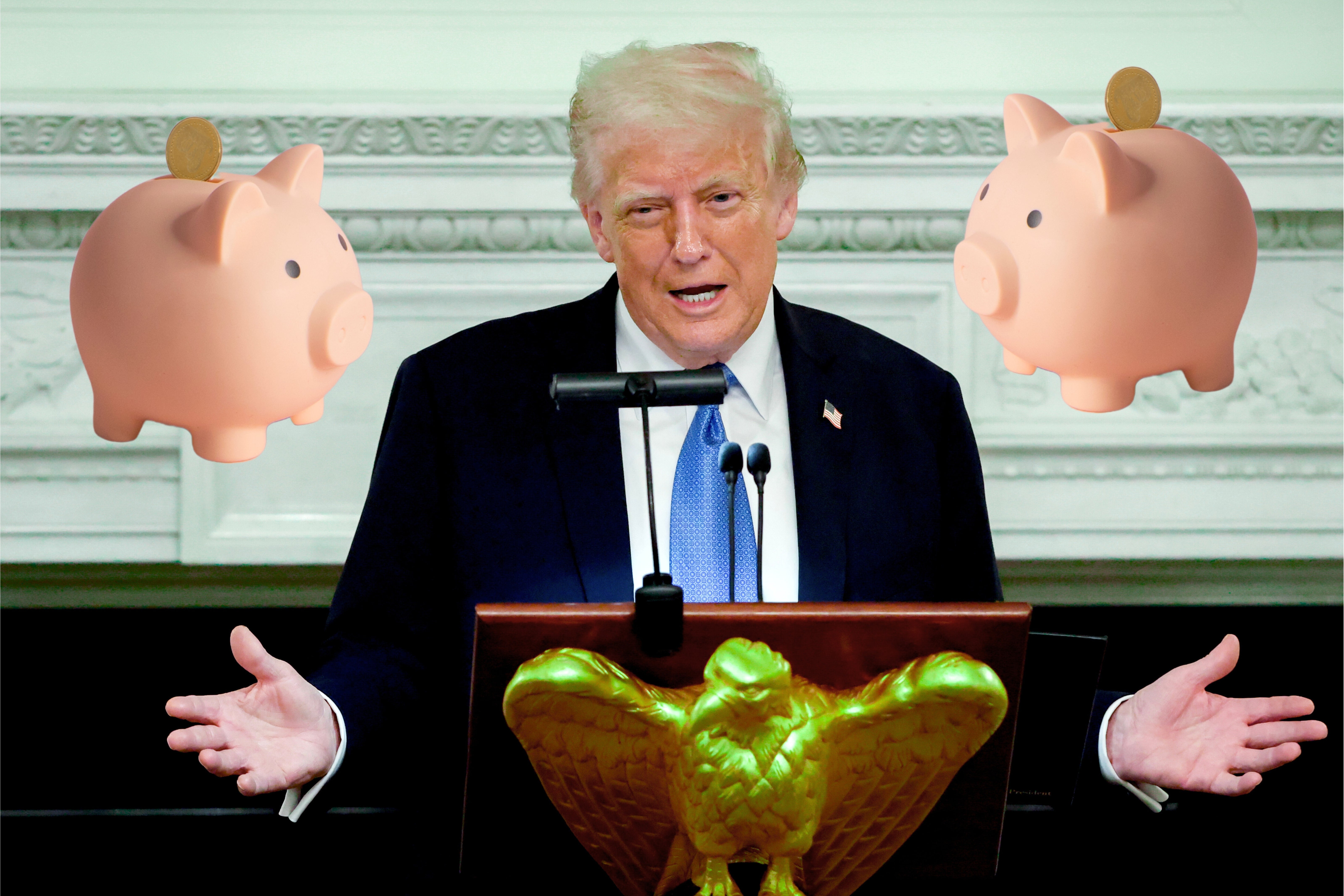GOP Tax Bill Touts ‘Trump Accounts’ Giving $1,000 To Newborns — But Experts Say It Wouldn’t Do Much For Parents

As the One Big Beautiful Bill Act makes its way to the Senate, one piece of the proposed bill is still stirring heated debate among parents and caregivers.
This part of the proposal aims to grant every newborn in the United States a $1,000 government-funded savings account — framed as an investment in the future of America’s children.
Advertisement
Supporters claim the initiative, backed by prominent conservative lawmakers, would promote financial independence and reduce long-term reliance on government aid. But economic experts and policy analysts are sounding the alarm, warning that the bill could deepen inequality, strain federal resources and divert attention from more effective ways to help lower-income children.
“As a parent I just have to laugh,” said Rebecca Schroeder from Florida. “This is not what we want or need, nor what we asked for. We need real policy that makes having children affordable and equitable, not this overly patriotic political move. It feels icky to me.”
Reinventing The Wheel?
Under the new bill, children born between Jan. 1, 2025, and Jan. 1, 2029, would receive the $1,000 deposit in an account, which would be invested in financial markets. Parents and loved ones can contribute to these accounts as well. Once the children are grown, they could withdraw the money to use for education, the down payment on a home, or capital to start a business.
Advertisement
Previously known as “Money Accounts for Growth and Advancement” or “MAGA Accounts” — the Trump Accounts are not unlike a 529 college savings plan, explains Ted Callahan, a financial tax analyst with Intuit.
“The earnings on these accounts grow tax-deferred, which isn’t all that different from a typical brokerage account,” he said. “But other similar options to these accounts already exist.”
Some of these already existing accounts include Coverdell Education Savings Account (ESA). Like a 529, it offers tax-free growth and tax-free withdrawals for qualified education expenses, including both K-12 and higher education.
Advertisement
Another alternative is a custodial account, such as a UGMA (Uniform Gifts to Minors Act) or UTMA (Uniform Transfers to Minors Act) account. These accounts don’t have contribution limits, though large contributions may be subject to gift taxes.
Unlike 529s and ESAs, custodial accounts can be used for any purpose that benefits the child, not just education.
“Each account type has its own pros and cons, so the right choice depends on your savings goals, how much control you want over the funds, and your tax situation,” said Callahan.
Advertisement
If the bill passes as drafted, parents would be able to contribute up to $5,000 a year to the Trump Account and the balance would be invested in a diversified fund that tracks the U.S. stock index. Sen. Ted Cruz (R-Texas) who spearheaded the effort, said the accounts give children “the miracle of the compound growth, the ability to accumulate wealth, which is transformational.”
This comes on the heels of the Trump administration considering a $5,000 “baby bonus” gift to any woman who gives birth, which was lambasted by parents, commentators and policymakers alike for being a shortsighted bandaid for the true mental and financial stress parents are under.
Trump Branding With Fewer Tax Benefits
Though “baby bond”-style legislation exists in numerous states already, tax experts are wary of this federal iteration. Callahan says he understands the goal behind the accounts, but doesn’t necessarily see them as more or less beneficial than what already exists.
Advertisement
This is because people can only contribute post-tax income to the accounts, and gains in the accounts would also be taxed when money was withdrawn.
“This makes this just a regular investment account with no real tax advantage,” said Callahan. “If you want to really help parents, you would almost need to have an annual amount deposited in the accounts that were tax exempt, and that amount would need to be very significant given the increase in the cost of living, and then educate children in schools about these accounts once they are old enough so they can understand how investing works.”
Too Little, Too Late For Working Families
In the end, while the Trump Accounts were introduced with the promise of supporting American families, both tax experts and many parents remain unconvinced of their true value.
Advertisement
Critics point out that the one-time payment structure falls short of addressing long-term financial needs like child care, health care, or education. At the same time, analysts argue that the broader tax plan surrounding the accounts primarily benefits high-income earners, with limited and temporary relief for middle- and lower-income households.
As the policy takes effect, its real-world impact will ultimately determine whether it meets its stated goals — or adds to a growing divide in how tax benefits are distributed.
“We just want quality healthcare and to know that when we send our son to school he’s safe,” said Schroeder. “These accounts are not the answer, and I really wish they’d spend more time focusing on what matters to parents.”
Advertisement

Comments are closed.